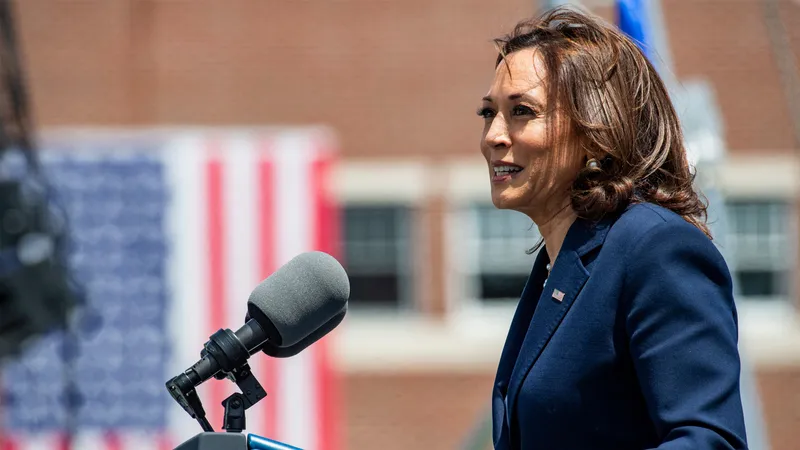Kamala Harris unveiled many campaign policy proposals today. Jeff Stein and Dan Diamond have it covered at the Washington Post. Below are reactions to some of these proposals
$25k for First Time Homebuyers
This is a bad idea. It is unfair to people who, even with the subsidy, cannot afford to buy a home or those who prefer to rent. Because it is a demand subsidy without any corresponding price controls, some of the money will also just get captured as higher home prices, negating the affordability goals of the policy.
A better idea that is thematically related would be to take the annual cost of this program, divide it by the number of people who turn 18 each year and then give the resulting dollar amount as a lump sum to people when they become adults. If they want to use it for a down payment, then they can. But they can also use it for college, buying assets other than owner-occupied real estate, or whatever else. This policy is sometimes called a demogrant and was, for a time, all the rage in the racial equality world, typically sold under the name of “baby bonds.”
What Harris is proposing is like a demogrant except only for people who have enough money to buy a home and who want to buy a home.
Tax Credit for Building Starter Homes
This is a bad idea. There is absolutely no reason to believe that the proximate barrier to building more housing is that it is not sufficiently profitable and that we need to therefore sweeten the pot with public subsidies. This is just a waste of money. Moreover, conditioning the receipt of the tax credit on whether the person who buys the home turns out to be a first-time homebuyer, as this proposal does, makes no sense. Home builders do not typically know in advance who they are going to sell it to.
Furthermore, this kind of targeting is not actually necessary to increase the opportunities for first-time homebuyers to buy a home. If you build a new home and sell it to someone who already owns a home, then that person, by moving into the new home, will generally create a vacancy in the form of their old home, which could then be sold to a first-time homebuyer. If instead, that newly vacant home is also sold to someone who already owns a home, then that person, by moving into that home, will generally leave a vacancy in the form of their old home, which could then be sold to a first-time homebuyer. Somewhere this vacancy chain will terminate without having to actually do this starter home tax credit thing.
Ban on Price Gouging for Groceries and Food
It is unclear what this even means. In a NYT article about it, Jim Tankersley writes that “Harris campaign officials did not detail how a price-gouging ban would be enforced or what current corporate behaviors would be outlawed if it were enacted.”
It is already illegal for producers to coordinate so as to fix prices, something Harris also separately said she plans to tackle through harsher penalties. “Price-gouging” is something different than that, but also seems to sometimes be used to refer to a very narrow set of practices like increasing the prices the day after a hurricane while other times being used to refer to any time sellers increase prices during a positive demand shock or negative supply shock, which is kind of how a lot of the economy works (when restaurants increase prices after happy hour, are they engaged in food price-gouging?).
A better idea would be for the federal government to spend about $45 billion to purchase Kroger. This would allow it to directly set the prices for the second-largest grocery store chain in the country.
Capping Out-of-Pocket Spending on Drugs at $2,000
This is a good idea, assuming it is designed well. Read David Trimmer on it here.
$6k Tax Credit for Newborns
This is basically a good idea. It is sometimes called a “baby bonus” or “maternity grant.” Ideally, you would not design this as a tax credit, but instead as a straightforward cash grant paid out by the Social Security Administration. In other countries, maternity grants like this are even provided a couple months before birth so that the money can be used for various baby-related items. Paying it out as a tax credit generally means parents wont be able to access it until the early parts of the year after they give birth, assuming they file for taxes, which the poorest parents do not do.
$3k Child Tax Credit (The ARPA CTC)
The current child tax credit (CTC) is $2,000 per child. It has a phase-in that excludes the poorest kids and a phase-out that excludes the richest kids. It is paid out in a lump sum at the end of the year.
For one-year, in 2021, the CTC was $3,000 per child, had no phase-in, and was paid out monthly. The basic idea of this was good, but the execution of it as an IRS-administered monthly advanced refundable tax credit was bad. Among other things, it caused poor people to not get the benefit, as I wrote about extensively in 2021.
A better idea would be to have the Social Security Administration pay a monthly cash benefit to every child.
Increase Subsidies for Individual Health Insurance Plans
It is hard to assess this idea without first observing that the entire structure of how we do health insurance is so unbelievably awful that all anyone should want to do is completely overhaul it. But it seems like Democrats basically are content with gradually adding more and more subsidies to help the relatively small percentage of the population who buy insurance plans from the individual exchanges. It’s fine.

